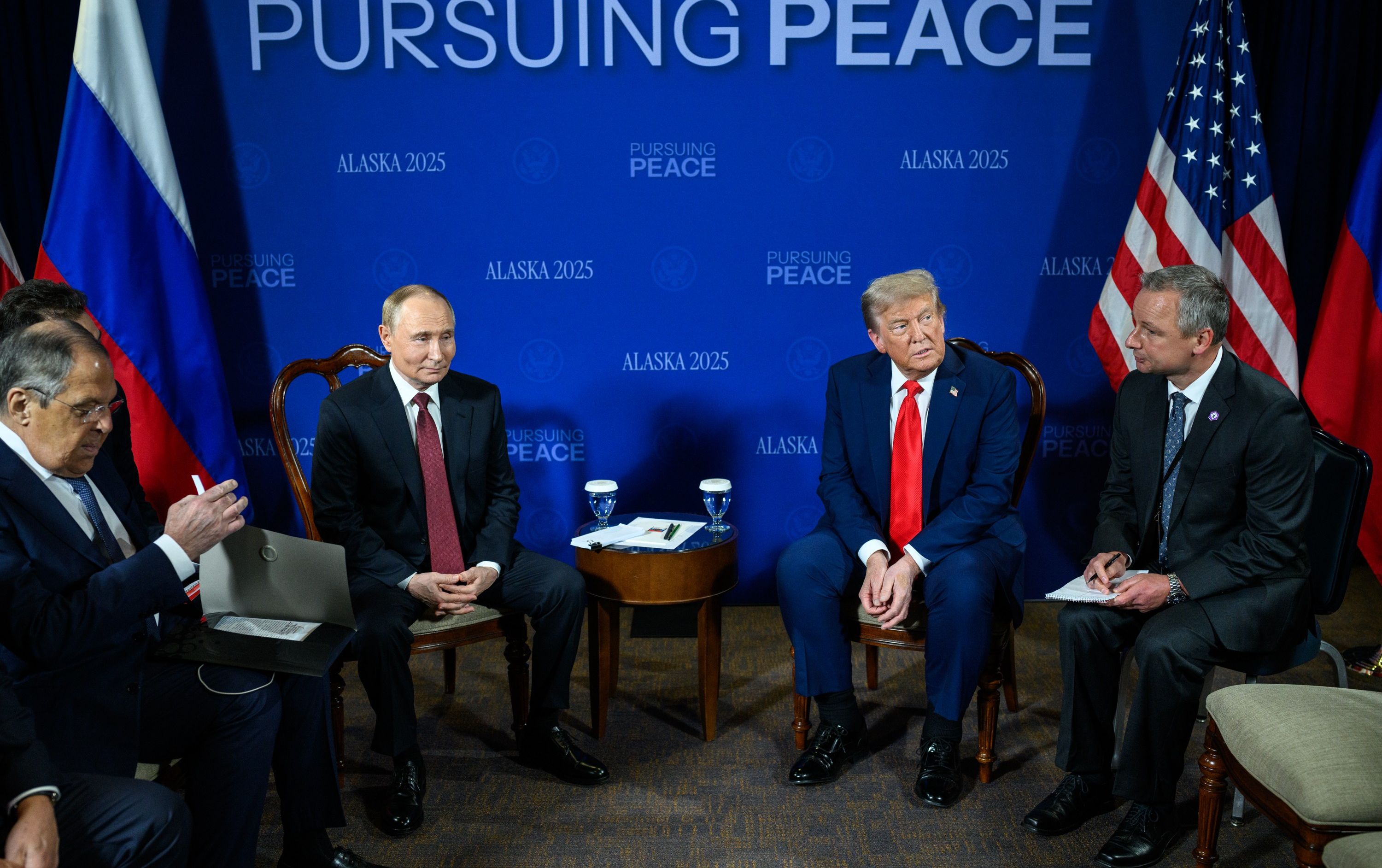The Trump-Putin Alaska summit was about far more than Ukraine. Since long before the meeting in Anchorage, the Arctic has been recognized as a setting for U.S.-Russia cooperation.
Now, with the historic presidential summit in the unexpected location of Alaska, the Arctic has been confirmed as one of the key areas for the normalization of the bilateral relationship.
During the joint news conference with President Trump, President Putin said “cooperation in the Arctic and the resumption of region-to-region contacts, including between the Russian Far East and the West Coast of the USA, also appear relevant.” President Trump did not specifically mention the Arctic in his remarks, but his administration’s initiative to host the meeting in Alaska was symbolic and indicative of a new age in U.S.-Russia Arctic cooperation.
Icebreakers and energy
Just before the meeting, U.S. officials had internal discussions on using Russian nuclear-powered icebreaker vessels to support the development of gas projects in Alaska as a potential deal to be made with President Putin. Although the details of what was discussed in Alaska are (as of writing this piece) limited, the icebreaker proposal makes sense. Russia is the only country with nuclear-powered icebreakers which help Russian companies conduct year-round shipping along the Northern Sea Route in the Arctic. In total, Russia has 41 nuclear and diesel-electric icebreakers and has a sophisticated network of Arctic port infrastructure.
By contrast, the U.S. operates only three polar icebreakers: USCGC Healy, USCGC Polar Star, and USCGC Storis. Expanding the U.S. icebreaker fleet is evidently important to President Trump; the administration has sought to acquire icebreakers from Finland and has allocated $25 billion for Polar and Arctic Security Cutters (icebreakers) for the U.S. Coast Guard.
Russian policymakers have also called for joint economic ventures, especially energy extraction and natural resource projects. A week before flying to Alaska, Putin’s foreign policy adviser Yuri Ushakov said, “It is in Alaska and in the Arctic that the economic interests of our countries converge and prospects for implementing large-scale mutually beneficial projects arise.” At the February 2025 bilateral meeting in Saudi Arabia, the Arctic was specifically discussed as a setting for joint projects. The Arctic, specifically where the two countries meet in the Bering Strait, presents the U.S. and Russia with a region of mutual interests.
Sanctions on Russia have led Moscow to increase its cooperation with China in Arctic energy and shipping projects. U.S. officials see Arctic cooperation as a potential means to “drive a wedge” between Moscow and Beijing. For Moscow, a new partnership with Washington could be an opportunity to offset its economic and technological dependence on China.
Climate cooperation
However, there are many more aspects to Arctic cooperation that could benefit the two countries, the region, and humankind as a whole: climate research and deconfliction. The Arctic is warming four times faster than the rest of the world, leading to dramatic transformations in the region: melting sea ice, thawing permafrost, eroding coastlines, and collapsing ecosystems. These impacts are detrimental to Arctic residents and Indigenous Peoples.
The U.S. and Russia have a nearly century-long history of Arctic science cooperation to jointly understand such processes and inform climate adaptation and mitigation. This crucial research has largely been paralyzed since 2022, when the Western Arctic states condemned Russia’s military actions in Ukraine and paused the work of the Arctic Council. The Biden White House also announced a termination of scientific cooperation with Russia.
While a return to climate-centric cooperation may be unlikely with the current Trump administration’s positions on climate change, environmental initiatives with a more specific focus may be achievable. Putin’s envoy Kirill Dmitriev said earlier this year that “the key issue for our discussion with Western powers, including the U.S., is climate… because we believe the Arctic is changing.”
The logic of the potential icebreakers deal (the U.S. gaining access to Russian expertise) can be applied to the study of permafrost: Russian researchers have centuries of experience in studying and adapting to permafrost thaw. The deterioration of permafrost undermines any potential economic ventures and threatens the structural integrity of infrastructure. American and Russian researchers should revamp their collaboration in this critical area.
Arctic peacekeeping
Ensuring the Arctic remains a region of peace and security is another important channel of cooperation for the U.S. and Russia. The frequency and intensity of military activity in the Arctic has increased. The participants in military exercises have increased, including China and non-Arctic NATO states. There are risks of a renewed arms race and the deployment of more powerful weapons systems, including hypersonic missiles, in the Arctic. Arctic security is important to the Trump administration as evidenced by President Trump’s rhetoric on acquiring Greenland and the 14 mentions of the Arctic in the 2025 Annual Threat Assessment.
The shortest distance for missiles and planes between the U.S. and Russia is via the Arctic. With Finland and Sweden now under the nuclear umbrella of the U.S. and NATO, all but one of the Arctic states (Russia) is a NATO Ally. The upcoming 2026 expiration of the New START agreement has important implications for Arctic security due to Russia’s concentration of its sea-based nuclear weapons in the region.
Previously, the Arctic was the setting for confidence-building measures, information sharing, and programs to reduce the risks of miscalculation, such as the Arctic Military Environmental Cooperation. Gorbachev’s Murmansk Initiative included calls for Arctic denuclearization, disarmament and establishing an “Arctic zone of peace.” Today, we are at dangerously low levels of trust — preventing such joint efforts.
To prevent a security dilemma and address these critical issues of Arctic security, it is important for the U.S.-Russia Arctic cooperation agenda to include trust-building, transparency, confidence-building measures, military-to-military and expert-to-expert dialogue, and additional measures to reduce the risk of escalation in the region. New military security architecture is needed in the Arctic. Restarting frameworks such as the Arctic Coast Guard Forum and Arctic Chiefs of Defense meetings may be first steps towards improving mutual understanding in the region.
















